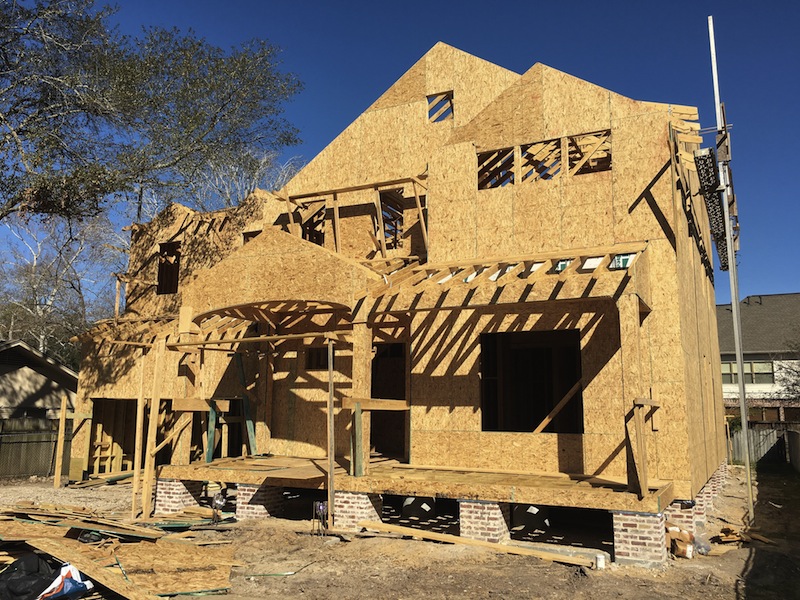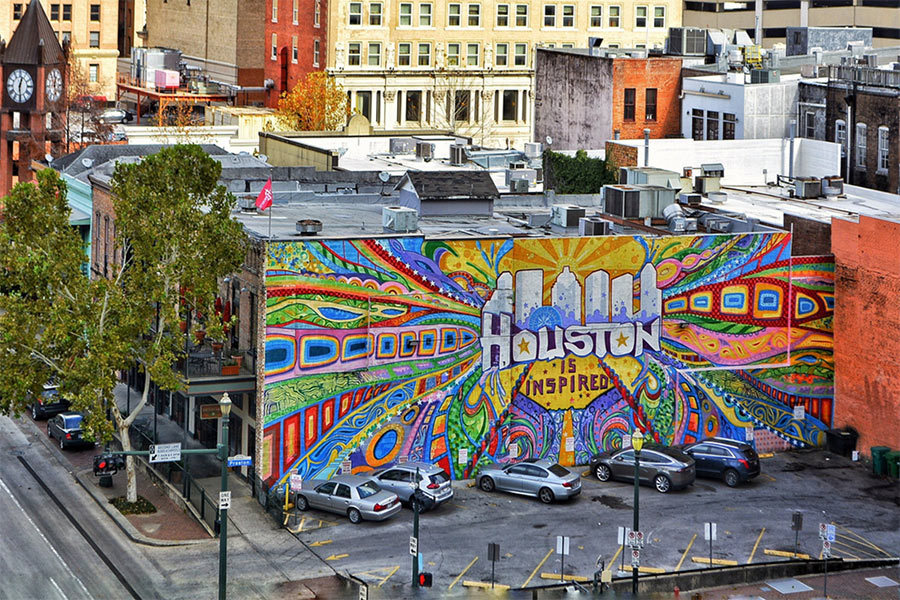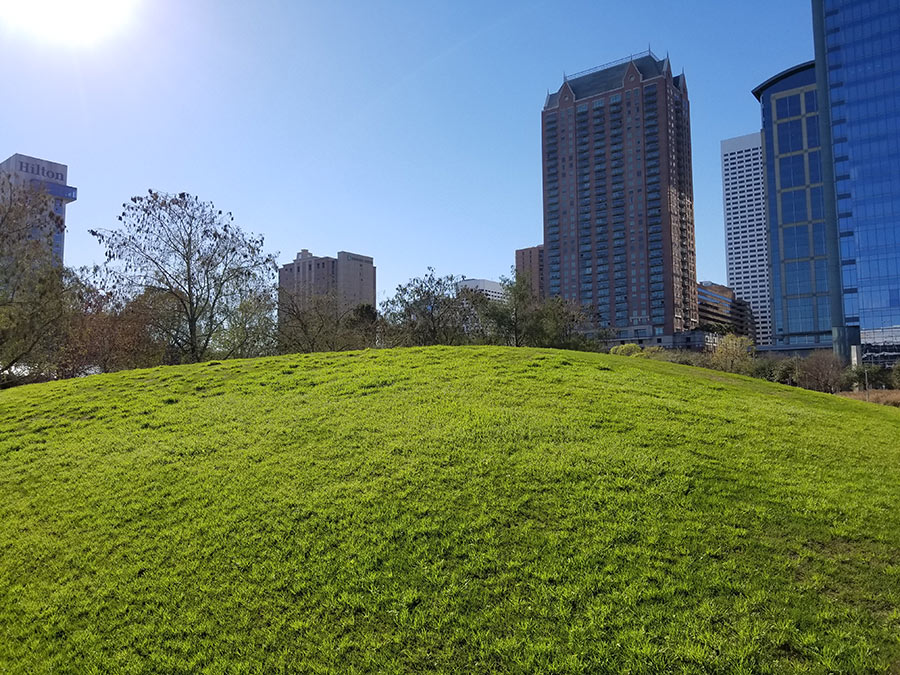
- State Construction Unemployment Rate Stood at 5.2% in December, Finds Associated Builders and Contractors [Houston Chronicle]
- Redevelopment Interest Picking Up in the Energy Corridor So Far This Year [HBJ]
- Wabash Feed & Garden Store Moving into Old Plumbing Supply Store on N. Shepherd [Houston Chronicle; previously on Swamplot]
- Cinema-Microbrewery Flix Brewhouse Planning First Houston Location in Sugar Land, More Likely To Follow [HBJ]
- New Tech Startup Skyler360 Acts as Personal Assistant for Houston Realtors [HBJ]
- No, Houston Will Not Make a Lot of Money Hosting the Super Bowl [Houston Press]
- How Will Houston Accommodate Nearly 1M Additional Residents by 2020? [Houstonia]
- Conference Will Explore How Houston Is Changing Its Identity Through Landscape Architecture [The Dirt]
- Rothko Chapel’s Iconic Obelisk Temporarily Removed for Restoration Work in Connecticut [Glasstire]
Photo of Spring Valley: Russell Hancock via Swamplot Flickr Pool
Headlines





I can tell you “how they’ll all fit”. They should have ample housing stock available, because the economists and sell-side shills who have been playing up the Houston growth story have completely ignored the inorganic nature of the growth. The shale “miracle” was a ruse facilitated by the Federal Reserve. Same holds true for the stock market which was (is) also being levitated by the Fed. Local economists have continually underestimated this downturn because they haven’t been paying attention to the phony nature of the “recovery”. A recovery built on debt is not growth, it’s just window dressing to cover up all of the fraud and malinvestment from the last bubble that collapsed in 2008. Want some proof? New home prices just collapsed 13.3 percent YoY out here in Katy. Yep, some “recovery”.
http://aaronlayman.com/2016/02/katy-texas-west-houston-real-estate-market-january-2016/
I feel like you’re less a realtor and more a fox news pundit.
I think the only reason we have yet to see a slowdown in construction is that it is really hard to stop construction of many of these buildings that have been started. I think in a few more months the housing market will be truly reflective of overbuilding. An working downtown, we are already are seeing a downturn in rentals and the increase in sublease space.
Re: Broken Obelisk. Ever since my last visit to MOMA and happening upon a 1:1 Broken Obelisk, I’ve questioned whether the one placed in front of the Rothko Chapel is the original.
I think in the current climate, 1 million new residents in Houston is being very generous.
MrE: What about his comments were ‘fox news’? Anyway, I do agree that we’re over built. Montrose basically put up 1000’s of units overnight. Tons of lots were bulldozed for midrise and $$ townhomes. Some of those projects are sitting there undone (or not started).
.
Look at the empty lot in Westmoreland that’s was going to be built on over a year ago.
@detroux: MOMA, in fact, has the third version of Newman’s sculpture. The chapel’s version is one of the first two fabricated Obelisks, the other is on the University of Washington campus in Seattle. These were created between 1964 and 1967. After some design modifications to correct for structural flaws, Lippincott fabricated a third version, which is MOMA’s. For more info:
https://www.philamuseum.org/micro_sites/exhibitions/newman/galleries/east-terrace.shtml
RE: Houston Not Making Money on Hosting the Super Bowl
.
Other than a marginal small blip in sales tax and hotel occupancy tax, I cannot see how anyone thinks that this will be some kind of bonanza for the city overall. Glad to see the Houston Press try to throw a small amount of cold water on the embers of rah-rah boosterism for the full year before Super Bowl LI.
.
Like political campaigns, there should be a law against jawboning about all of this too far in advance of the actual event. I’d say 1 month is plenty of time to talk about Houston’s Super Bowl.
Cody, I think it has a lot to do with Aaron’s vendetta against fed policy.
.
And Aaron, there’s very very good reasons the fed should be maintaining a low interest rates in troubled economic times. Yes, it creates over-valuations in some sectors of the economy, but maintaining the flow of money in the economy to increase employment and hopefully kickstart some real wage growth/inflation some day is much more of a priority than any of your disagreements. It’s not the fed’s fault that congress has ensured the majority of economic growth is captured by the upper classes creating the problems you continually rail against. Congress is the one that giving handouts and tax breaks to wealthy homeowners, not the fed. America’s housing policy and tax deductions set by congress are very misplaced and create much more distortion in the market than any of the fed’s actions do.
@Joel, MrEction:
Cody is correct in that my views are quite the opposite of what you’ll find on Fox (It’s not really news) News. Yes, the Fed is supposed to regulate rates to keep the economy balanced, but that’s NOT what they have been doing. The Fed has been front-running the markets to reflate asset prices and keep the banking sector and Wall Street happy. The last 7 years have been about burying the fraud and looting from the public’s view under the mirage of a “wealth effect” that is built on quicksand. The real estate industry has of course been a prime beneficiary of the Fed’s trickle-down policies, but that doesn’t change the crony capitalist nature of what has transpired.
The bubbles and malinvestment that the Fed has facilitated will have lasting consequences (see the oil industry as just one example), and not in a good way. I’m simply pointing out the hidden policy agendas working behind the scenes that have kept this charade going, the same policy agendas that local professional economists have completely ignored. It’s important to remember that the Federal Reserve is supposed to be a primary regulatory mechanism of our large banks, and in that capacity they have been completely AWOL. If you think anything has changed from what happened back in 2007,2008 I would encourage you to go see ‘The Big Short’. Or better yet, read the book which is even better.
My dog barfed this morning. It was obviously the Fed’s monetary policy that caused it. Energy markets tanked because OPEC (primarily the Saudis) decided that it was better to rack up a budget deficit equal to 15% of GDP than to give up a half million barrels of production to US tight oil producers. No one thought that the Saudis would dump an extra million barrels a day onto the market (at tremendous peril to the economies of OPEC member states) to try to win back market share. So, the Houston housing market over shot demand. But unlike the 80s when the S&L crisis and crazy tax shelter rules spurred a building boom in the middle of an oil bust, the housing market is responding rapidly to the changing circumstances in Houston. Funding for new multifamily projects hit a hard stop last year. And the excess capacity is largely in areas that will see the sharpest rise in demand once the energy markets return to sanity (inside the loop, energy corridor, Galleria area, etc.). It is not like some NY hedge fund dumped 20,000 units of apartments in a cow pasture in Pearland.
Aaron, read the book well before the movie. Loved it. However, the fox news ‘slams’ that come up and random always seem so forced and out of place. But anyway…
.
You have to roll with what the policy is. Right now the fed is pushing low rates. Cool. I’ve done 8 digits of refinancing in the last year to lock in some of this cheap money. And it’s allowed my company to expand and invest heavily into acquisitions and upgrades of existing class C stock. So in my mico example, it’s not been bad…
.
If rates were higher, I’d have been in a totally different position.
The problem is that money is nowhere near as cheap as it should be, and that’s really hurting the recovery for the effect it’s having on commodities (like say, oil, which took a bath today on news about the dollar strengthening). While long term low interest rates do push money supply to markets, it’s still clearly nowhere near where it should be, and it’s honestly a mystery to as to why that is. With all the QE and years of rock bottom interest rates the dollar should not be slamming through the ceiling across the board, but it is. This is why the fed is so reluctant to increase interest rates. Higher interest rates only serve to increase the value of the dollar even farther, which would be really really really bad for the oil market. Honestly, we should be happy they’ve done what they’ve done, it would be so much worse if we had higher interest rates.
.
Why this is happening is a total mystery to me though. If I were to guess it would be that after 2008 there were a lot of new regulations instated which required increased capital reserves at banks. The rate at which money disappeared into these reserves was fast enough that it absorbed the extra money supply generated by low interest rates and QE. The other contributing factor would be that money is purely a relative concept, and pretty much every other currency in the world is in the toilet for reasons of their own, which makes ours look better purely by comparison. But this is all a pretty wild guess at best.
.
And I do appreciate the effect it has on the housing market. “Cheap” money pushes a lot of asset expansion, which is not always good for realty, but “cheap” in this context is only a local concept. In the global sense the dollar is phenomenally expensive, and to increase the local price would only serve to exacerbate the global problem. If I had to choose between an oversupplied housing market and 10$/barrel oil I hope it’s clear which one I would choose, because as bad as the housing market might get its better than a recession built on the backs of a monstrous dollar. And this is really indicative of the age old rivalry between realtors and bankers in how they view the economy, they couldn’t be more diametrically opposed at times like these.